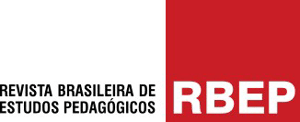Abstract:
Mathematics goes far beyond school, since it allows people to participate in the literate world. Therefore, the focus of this empirical study is to investigate the level of comprehension of 3rd to 5th grade students regarding multiplication and which strategies they use to solve an experimental activity involving this sort of operation. 81 students from four public and private schools in the state of Goiás have participated. The instrument used to identify such a comprehension was an experimental situation that required knowledge of addition, multiplication and division, with the possibility of finding six levels of multiplication understanding, which had increasing levels of complexity. Results indicated that students from the three grades had difficulties concerning a multiplication operation with natural numbers and the operation "n times x" through mental anticipation, resorting frequently to empirical support and an intuitive use of repeated addition. No significant difference was verified in terms of gender and socioeconomic level, though age and school grade were good predictors for a better understanding of multiplication. This study caters to the possibility of more research involving the pedagogical practice of arithmetic operations, granting a broader analysis of teaching and learning processes.
Keywords:
problem solving; mathematics education; BNCC; early childhood education; addition and multiplication structures
